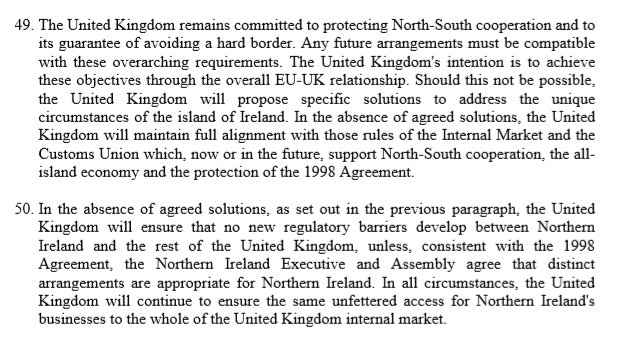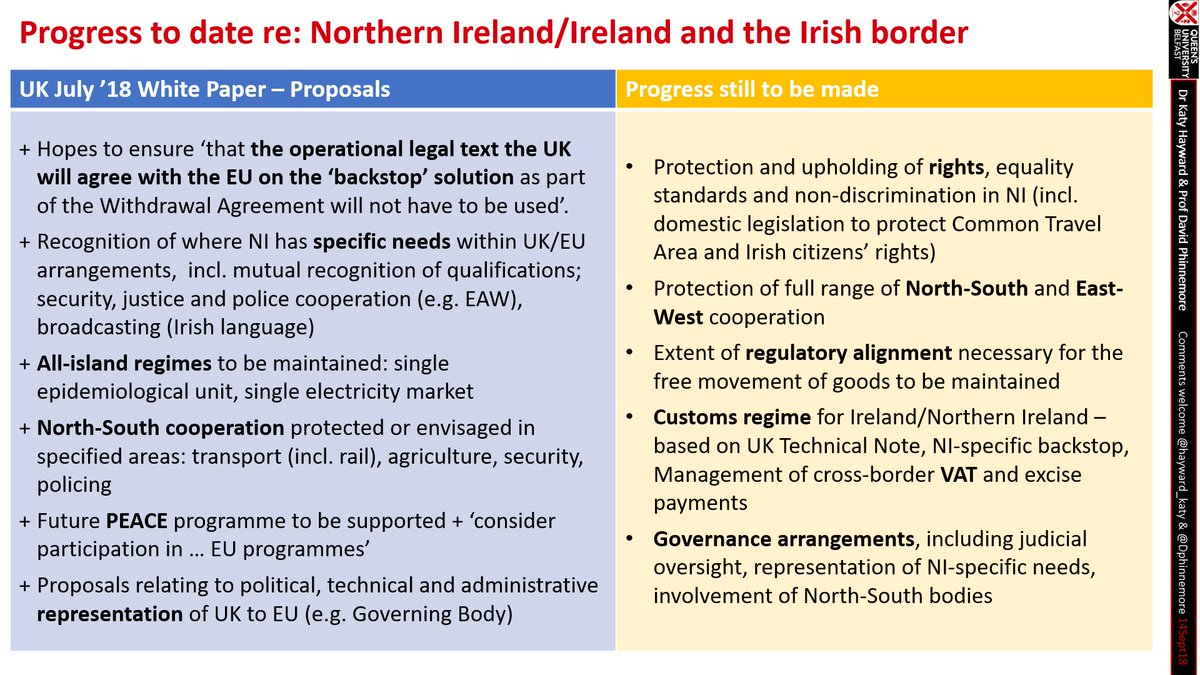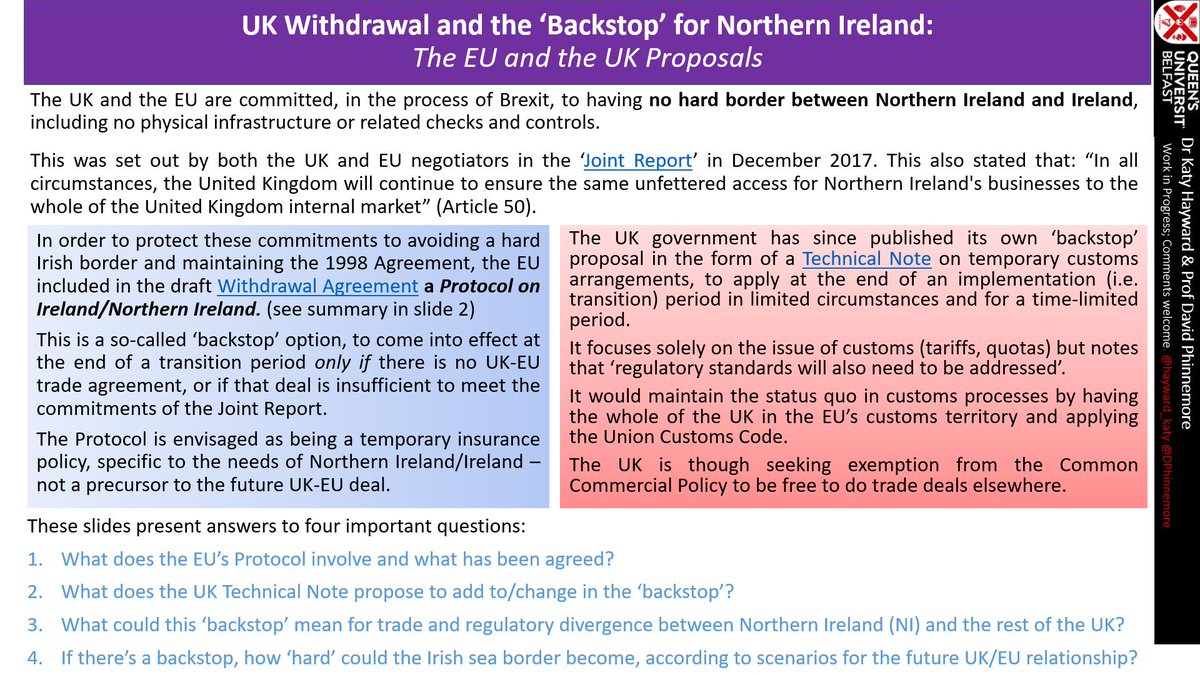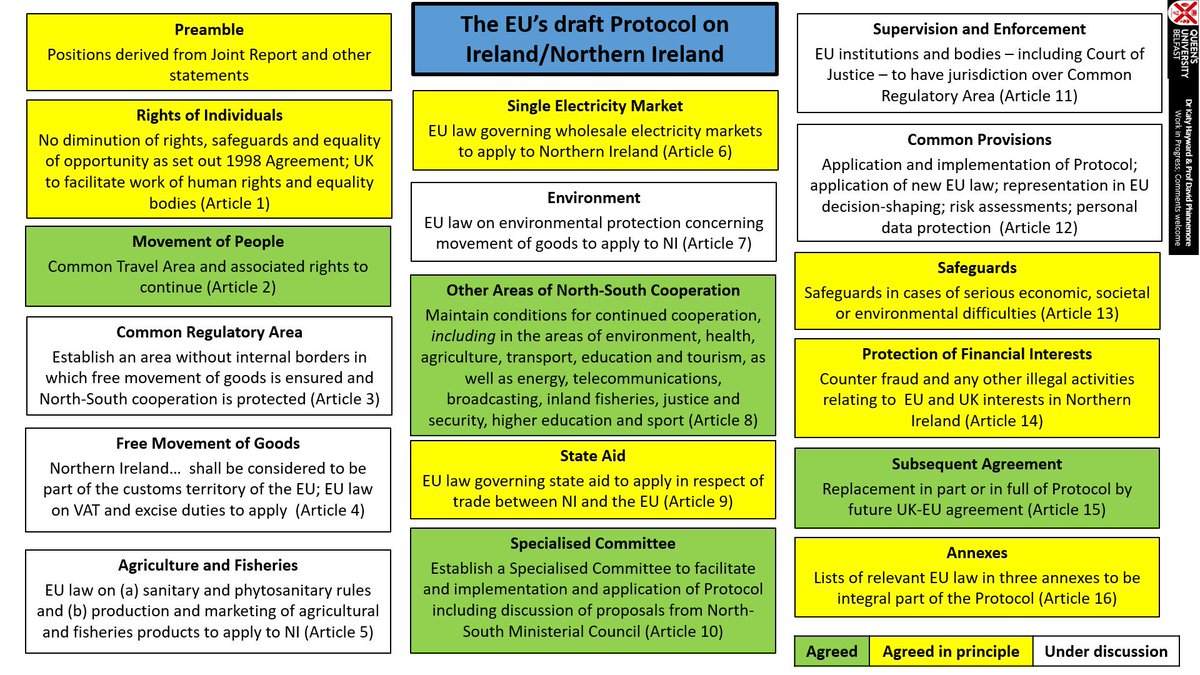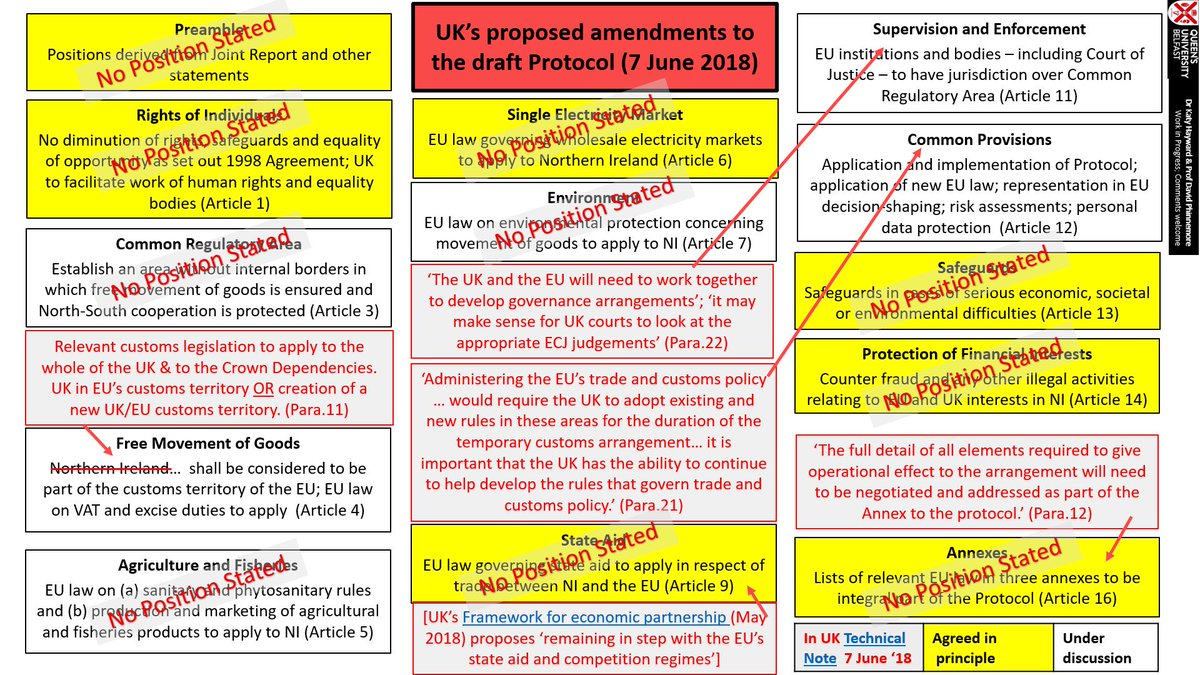A persistent argument against it is the claim that it makes Northern Ireland a voiceless "rule-taker".
Here's a mega-thread based on research with @hayward_katy taking a closer look at this issue.
1/25
assets.publishing.service.gov.uk/government/upl…
2/25
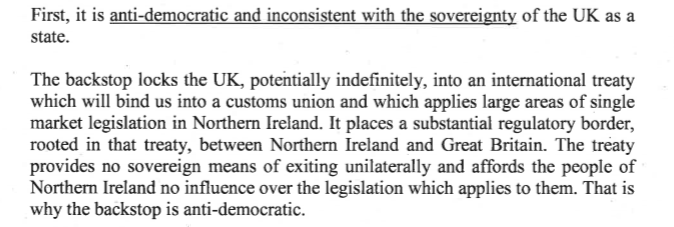
Nigel Dodds has claimed that the backstop ‘would see laws made in Brussels impacting the economy of Northern Ireland with no-one in London or Belfast able to vote on them or even ask a question about them.
mydup.com/news/article/c…
3/25

ft.com/content/673df5…
4/25
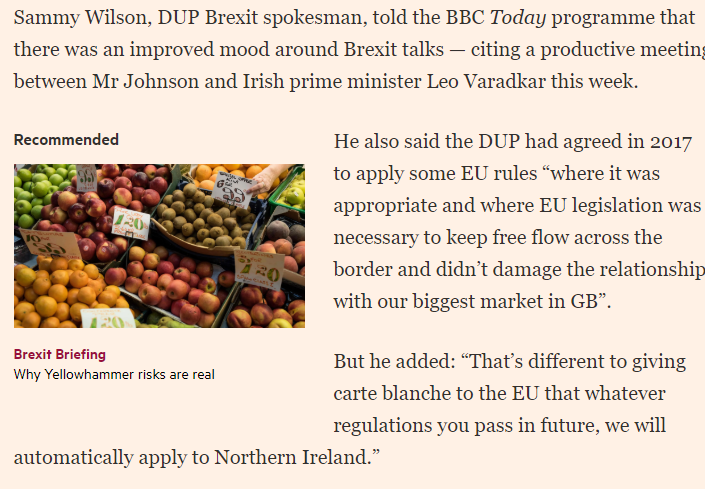
5/25
6/25
According to the UK government, it is ‘a small fraction of EU single market rules, and only those strictly necessary to avoid a hard border’
assets.publishing.service.gov.uk/government/upl…
7/25
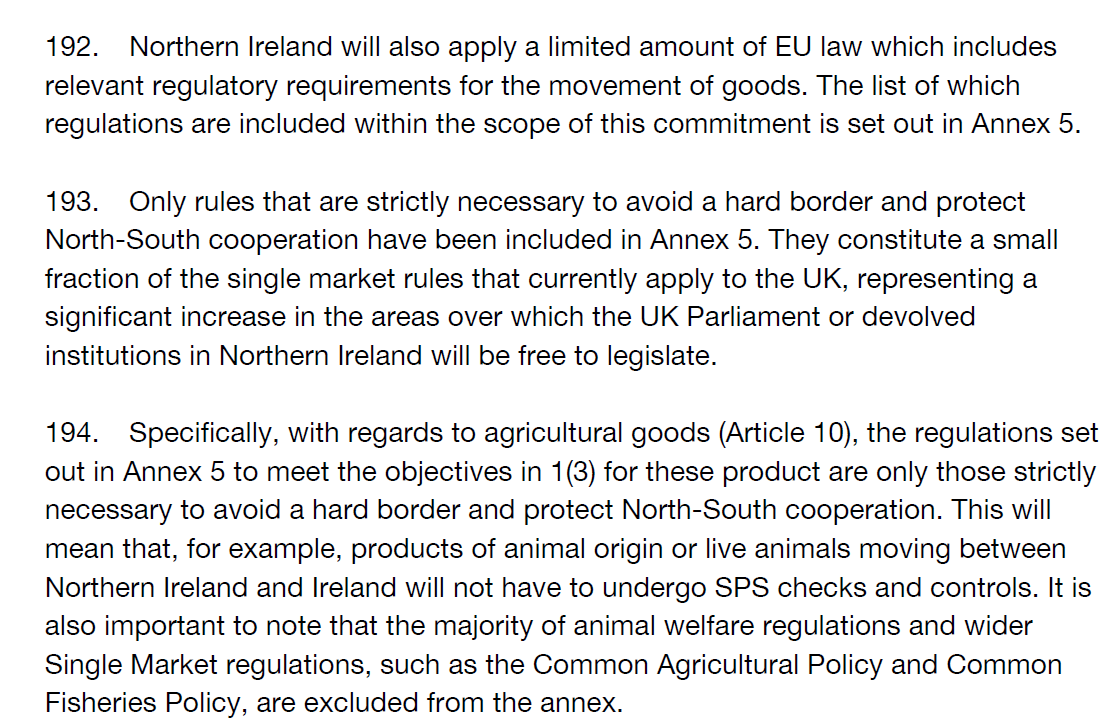
Many other acts are technical (e.g. on electromagnetic compatibility).
Some have wider policy implications and have attracted controversy (e.g. REACH directive).
9/25
EU acts related to the Single Electricity Market on the island of Ireland are also included
10/25
The adoption of much of the legislation also involved the EP and so the UK’s MEPS including three MEPs from Northern Ireland.
11/25
It would be wrong, however, to say that the UK/Northern Ireland would have ‘no influence’ or ‘no say’ in the process.
13/25
The effectiveness of the say depends on at least two factors:
19/25
- Being able to articulate the interest through the direct involvement of NI representatives in the JCWG in particular, the SC and the Joint Committee (JC)
Determining representation is a matter for the UK government
20/25
The Protocol's scope is defined; and the application of new EU acts requires UK agreement.
But, EU action possible if act not applied.
24/25
- EU acts applicable to NI under the backstop are defined and limited
- Amendments/replacements apply automatically
- New EU acts only apply with UK approval
- Dedicated institutional arrangements can provide NI with a voice in backstop's implementation
/end














